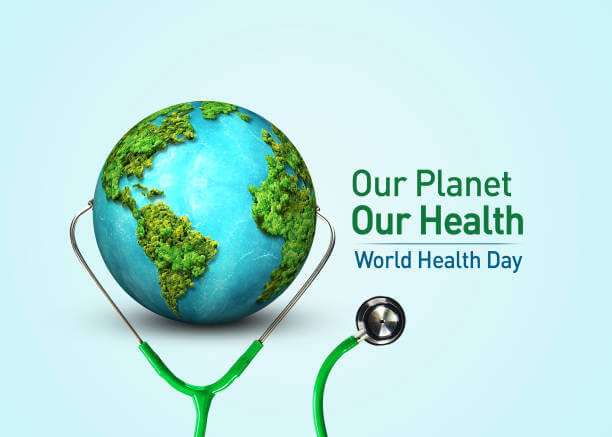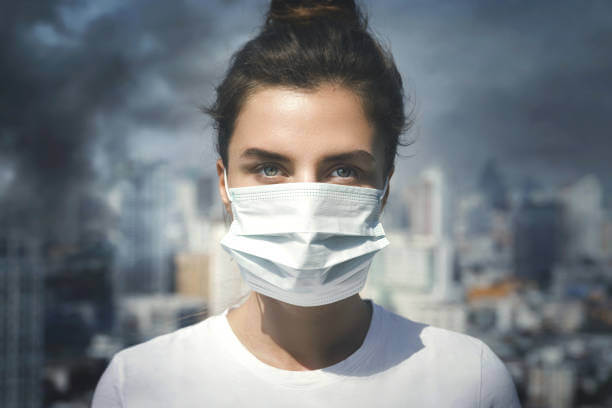

Everything You Should Know On World Health Day 2022
By: Sukhada, Diamond
Published On: April 06, 2022
“The groundwork for all happiness is good health”
- Leigh Hunt, English critic and essayist
Imagine, it’s a beautiful Sunday morning but you wake up groaning. You have to lie on your bed all day doing nothing… because you are sick. Now imagine another scenario where you wake up on a Monday morning and you have a lot of work ahead of you. But in this case, you are all healthy and energetic. You will not only tackle your Monday blues but also have a great day at work!
Health plays an important role in feeling happy. With good health comes positive thinking and positive thinking motivates a great outlook on life.

In order to draw the public’s attention to a specific health topic of concern, World Health Day is celebrated annually on the 7th of April every year. It marks the anniversary of the founding of the World Health Organisation (WHO) on the same day in 1948. The theme for World Health Day 2022 is Our Planet, Our Health. The theme focuses on the need for urgent actions to keep humans healthy and the planet free from pollution.
How Pollution Affects Health
Environmental pollution increased significantly by the 19th-century post the Industrial Revolution. The world saw a drastic increase in population along with an increase in living standards. The introduction of assembly lines and factories, electricity development, and railroads all contributed to the faster and more efficient production of goods. But the use of fuels in industries led to environmental pollution and depletion of natural resources.

According to WHO, 4.2 million deaths occur every year globally due to exposure to outdoor air pollution.
Some of the adverse effects that pollution has on humans are:
Lung diseases: Exposure to high levels of air pollution increases the risk of respiratory infections, heart diseases and lung cancer. Children and adults are most susceptible to it.
Water-borne diseases: Water pollution occurs when toxic substances from factories, farms and towns readily dissolve into the groundwater. This causes water-borne contagious diseases such as cholera, diarrhoea, typhoid, hepatitis, gastroenteritis, scabies, and worm infections.
Acid rain: Acid rain is the result of the emission of sulphur dioxide (SO2) and nitrogen oxides (NOX) into the atmosphere and is transported by wind and air currents. The sulphur dioxide that this rain carries may result in chronic lung problems, like asthma and bronchitis.
Global warming: Global warming is the slow increase in the average temperature of the earth’s atmosphere due to human activity. Extreme heat and poor air quality increase complications from underlying heart and respiratory conditions like asthma, renal failure, and preterm birth. Also, there may be a dramatic increase in the number of heat-related diseases.
How to stay healthy?
Covid-19 has taught us the importance of strengthening our immune system. Here are some practical health tips to help you start off toward healthy living:
Consuming a healthy diet: A balanced diet supplies essential nutrients to the body to work effectively. Including veggies in meals, and eating fresh fruits as snacks aids digestion. They are a good source of vitamins and minerals, including folate, vitamin C and potassium. The right combination of fruits, vegetables, legumes, nuts and whole grains helps reduce the risk of malnutrition and diseases such as diabetes, stroke and cancer.

Drinking safe water: According to WHO, at least 2 billion people use a contaminated drinking water source. Drinking contaminated water can lead to a number of water-borne diseases. Hence, it is always necessary to check if the water used for drinking is safe or not. If not sure of it, boil the water for at least one minute. This will destroy harmful organisms in it.
Regular exercise:
Exercising regularly can improve muscle strength and boost endurance. Exercise delivers oxygen and nutrients to body tissues and helps the cardiovascular system work more efficiently. This helps us with more energy to tackle daily chores. Adults aged 18-64 years should do at least 150 minutes of moderate-intensity physical activity throughout the week in order to stay healthy.

Regular checkups: A famous proverb says: ‘Prevention is better than cure.’Regular medical checkups help determine possible health conditions beforehand. Thus, chances for treatment and cure are better.
Washing hands: Hands are the primary carriers of bacteria, dirt and viruses, as they can come into contact with so many different surfaces throughout the day. Unclean hands can be a reason for the spread of infectious diseases. Hence, washing hands with soap and water or hand rubbing with an alcohol-based product is necessary. This can prevent harmful microorganisms from entering the body, spreading elsewhere, or causing cross-contamination.
Safe sex: Taking care of sexual health is important for a person’s overall health and well-being. With appropriate knowledge and by practising safe sex, one can prevent infections such as human immunodeficiency virus (HIV), sexually transmitted infections (STIs) and reproductive tract infections (RTIs).
Importance of Mental Health
Mental health is a neglected component of our well-being. Consulting about mental issues is still considered a stigma in many countries including India. When we talk about mental health, we refer to our emotional, psychological, and social well-being. Our mental health affects how we think, and feel, on an everyday basis. Hence taking care of emotional issues is very important.

Following activities can contribute to staying emotionally healthy:
Healthy sleep: Getting enough sleep is very important for the proper functioning of the brain. Doctors recommend 7 to 9 hours of sleep for adults in order to stay healthy.
Practice relaxing activities: It is very important to spare some time in your day to practice activities that you like. This could be meditation or a hobby or a sport that one likes.
Practising gratitude: Gratitude makes a person feel positive emotions, value things and relish good experiences. It also adds more optimism and happiness to a person’s life.





 Information
Information Alert
Alert